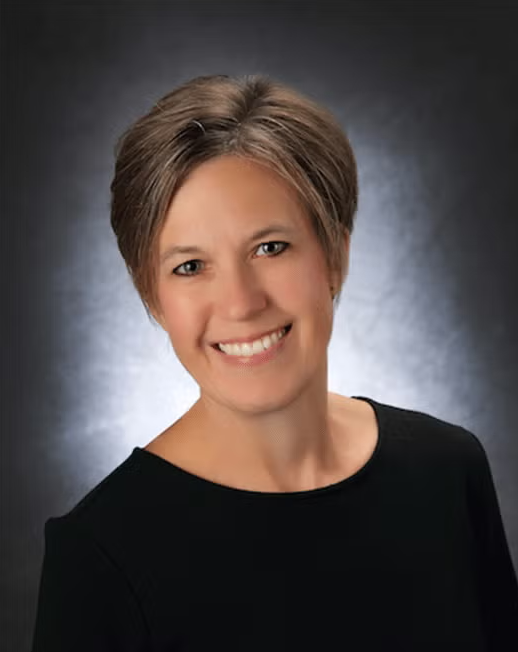Tap into your passion for education and quality care.
Prepare to impact the future of nurse teaching with the online MSN Nurse Educator program. Graduate ready to earn your Nurse Educator certification. Expand your understanding of procedures, skills and clinical reasoning related to health and nursing to improve nursing practice. Gain an understanding of creating materials that encourage professional development and training. Learn to design and implement a curriculum as well as various teaching strategies. As a Nurse Educator, graduates will be prepared to teach in a variety of settings and influence the next generation of nursing professionals.
We have great news! Students pursuing their MSN-Nurse Educator degree will receive 17 credit hours towards their MSN free. Learn more by speaking with an enrollment advisor today.
Online MSN-NE Program Fast Facts
- Clinical placement: Be supported with a preceptor and clinical site
- 100% online coursework
- 42 Credits
- Complete in as little as 3 semesters
- Eight-week courses
- Three start terms per year
Admissions Requirements
- No GRE or GMAT required
- BSN degree from an accredited school of nursing
- Current, unencumbered Registered Nurse (RN) license
- Complete of an undergraduate or graduate-level statistics course
- Official transcripts from all academic institutions attended
- No application fee
- Two letters of reference
This program is available to students residing in the following states: Colorado, Connecticut, Delaware, Hawaii, Illinois, Indiana, Iowa, Kansas, Kentucky, Maine, Maryland, Massachusetts, Michigan, Mississippi, New Mexico, New Jersey, North Carolina, Ohio, Pennsylvania, Texas, Vermont, Virginia, West Virginia.
Clinical Placement Support
At Walsh, we understand the value of support, which is why we provide extensive clinical placement support for students in our online graduate nursing programs.
Walsh’s clinical placement services team collaborates with MSN-NE students to secure clinical sites and preceptors for all graduate-level clinical courses. Throughout the entire placement process, a dedicated placement coordinator will support you every step of the way.
We collaborate with students to source and vet placement sites for all our online MSN NE students.
We assist in the heavy lifting to confirm your placement site meets all of the necessary clearances.
We’ll be readily available to answer any logistical questions you have about the placement process.
Online Masters in Nursing Education Program Curriculum
Below is a sample list of courses you will take while enrolled in the online Masters in Nursing Education (MSN-NE) program. For a full online MSN program course list, please download a brochure.
This course provides a foundation for conceptual and theoretical thinking and explores the development of nursing knowledge, theory, and their relationship to nursing education, practice and research. A historical overview of concept and theory development in nursing and related disciplines is explored as well as the process of critiquing, evaluating, and utilizing nursing theories. The course will introduce the student to evaluation, utilization, and application of current research in promoting evidence-based practice. Processes for implementation and evaluation of evidence-based nursing practice are discussed.
This course focuses on the interrelationships of human biological systems, biochemical, genetic and cellular concepts, providing the framework for the study of advanced pathological concepts. Case studies illustrate theoretical concepts and assist in the application of theory to practice.
This course explores instructional frameworks, learning environments including traditional and virtual classrooms as well as clinical environments, and student management and motivation techniques. Students will examine theories associated with optimizing the teaching experience and student outcomes and gain an understanding of evidence-based teaching, learning, communication, and motivation strategies used for specific learning situations and student populations.
This course includes didactic content and practicum opportunities to expand clinical knowledge of procedures and develop skills and clinical reasoning related to acute and chronic health conditions. Collaborative skills and the importance of interdisciplinary team development are emphasized, as well as the application of content to the nurse educator’s role.
This practicum course is designed to combine practice and theory and provide an opportunity to apply knowledge and competencies acquired throughout the program of study to educational environments. It is a time intensive practicum in an educational setting of the student’s choice (200 clinical hours).
Want More Info?
Submit your information to instantly access a digital program brochure.
Next App Deadline:
April 13, 2026
Online Masters in Nursing Education Careers and Outcomes
According to the Bureau of Labor Statistics, demand for nurses is on the rise and, therefore, so is the demand for nurse educators to train them. The BLS reports that the projected employment for nursing instructors and educators will rise by 22% through 2030, representing 16,300 new jobs for nursing instructors as they train the next generation of nurses.
Nurse educators work in a variety of environments, including:
- Academic institutions
- Hospitals
- Various healthcare facilities
The Robert Wood Johnson Foundation observed a nursing faculty shortage and emphasized the need for educators with in-the-field experience. The American Association of Colleges of Nursing conducted a survey where more than 1,000 faculty jobs were vacant. More than 60,000 applicants were turned away from nursing school due to a lack of faculty and educational facilities/resources. Your role as a nurse educator helps fulfill the need for experienced educators who have the knowledge and skills necessary to influence as well as shape the future of nursing.
Nurse educators enjoy healthy salaries both in academic settings like nursing schools and health care settings like hospital systems. The average annual salary of a nursing instructor ranges between $75,470 and $100,330 depending on factors such as region and experience level.
$75,470
Median Annual Salary
Employment Opportunities In:
- Colleges & Universities
- Junior Colleges
- General Medical Hospitals
- Surgical Hospitals
- Technical and Trade Shcools
Hear From Nurse Educator Faculty
As a Master of Science in Nursing Education student, you will expand your understanding of procedures, skills and clinical reasoning related to health and nursing to improve nursing practice.
You'll graduate ready to design and implement a curriculum as well as novel teaching strategies.
Here's how Walsh University will prepare you to impact the future of nursing as a nurse educator.
Read our Nurse Educator blog for more insights on the field.
Angela Gager
Interim Chair of Graduate Nursing Programs
B.S.N., M.S.N. and D.N.P., Kent State University
Frequently Asked Questions
Clinicals are a required portion of the program that allow you to apply the skills you learn in real-life situations.
As a Walsh MSN student, you’ll be paired with a clinical placement coordinator who will collaborate with you to assist in securing clinical sites and preceptors for your clinical courses.
- Online MSN-FNP program includes 3 clinical rotations for a total of 700 clinical hours.
- Online MSN-PMHNP program includes three clinical rotations for a total of 600 clinical hours.
Our online nursing programs are offered in full- and part-time formats so the programs can be balanced with your current job or other responsibilities. As such, the time to completion will vary by format and specific program. However, in general, programs can be completed in 2 to 4 years, depending on the program.
- The Online MSN-PMHNP program consists of 48 total credit hours. You can complete the program in as little as two years as a full-time student, with a part-time option also available.
- The Online MSN-FNP program consists of 45 total credit hours. You can complete the program in as soon as 2 years as a full-time student, but there are also part-time options available. Depending on your schedule, you can choose to take just one or two courses at a time to balance with working full-time.
- The Online MSN-NE program consists of 42 total credit hours. You can Complete in as little as 3 semesters, eight-week courses.
Yes, we offer competitive tuition rates at $775 per credit hour, and we also have a variety of financial aid options available. Visit our Tuition and Financial Aid page for more details.
Residency requirments for Online MSN specialization:
- Online MSN-PMHNP program: you’ll participate in two intensive experiences: one online and one in-person on the Walsh University campus. The on-campus experience provides hands-on learning, workshops and training.
- Online MSN-FNP program: you’ll participate in two intensive experiences beginning in your second year. The first intensive experience will be virtual and requires no travel. The second intensive experience will be in-person on the Walsh University campus for two days of hands-on learning, workshops and training.
With 100% online coursework, our nursing programs are designed for working professionals. While the online coursework remains flexible, it is important to note that to complete your clinical hours, you may need to adjust your work schedule to accommodate your clinical hour requirements.
Students should plan to devote a minimum of 20 hours per week to clinical hours. If you plan to work full-time while in the program, your schedule must accommodate these requirements. These courses take place toward the end of the programs, so you’ll have time to figure out what would work best for your situation.
Throughout this program, you will connect with your classmates and faculty through group work, discussion boards and peer feedback sessions to ensure an online program centered around collaboration and interactivity. Instructors also host one-on-one office hour opportunities to help you remain connected with your coursework and engaged with the Walsh community.
In addition to your in-class studies, the clinical portions of these programs allow for hands-on, practical experience. Students receive instruction and interaction within students' own communities, including individual and group supervision. These interactive portions of the program emphasize developing therapeutic relationships, nursing procedures, ethical practice and the application of nursing and mental health theories to various client concerns.
The master’s degree program in nursing at Walsh University is accredited by the Commission on Collegiate Nursing Education (http://www.ccneaccreditation.org).




